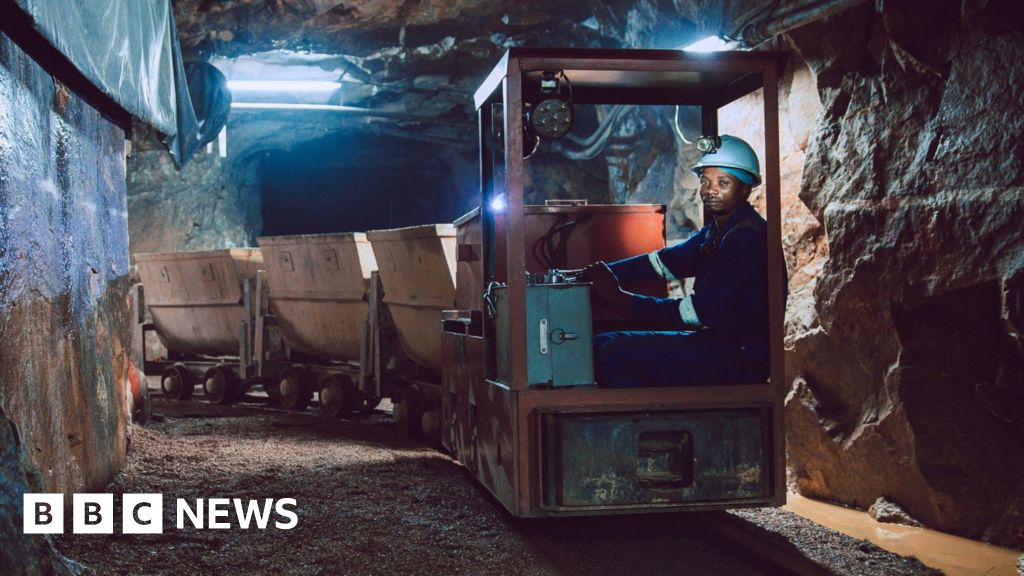The Strategic Tug-of-War Over Africa’s Critical Minerals
The Global Stakes Explained
You might be reading this article on a cutting-edge gadget, but have you ever wondered what powers it? Beneath the sleek surface of your device lies a complex web of minerals and metals, the extraction and processing of which is becoming a battlefield between the United States and China. This competition particularly centers on Africa, a continent rich in the essential resources—like lithium, cobalt, and tungsten—that underpin modern technology.
Africa: Motherlode of Minerals
Africa is teeming with critical minerals essential not just for personal electronics but also for electric vehicles, artificial intelligence, and even military technologies. Historically, China has maintained a commanding position in this arena, backed by domestic reserves and expansive investment in foreign mining operations, especially in Africa. This advantage has even allowed China to dominate the processing of these materials, which has caused concern in the U.S. about dependency.
U.S. Investment Surge in Africa
In response to this geopolitical landscape, the U.S. has ramped up its foreign direct investment in Africa, recently surpassing China for the first time since 2012. In 2023, American investors poured $7.8 billion into the continent, compared to China’s $4 billion. This shift is indicative of a strategic pivot aimed at securing critical minerals, fortifying U.S. supply chains, and countering China’s influence.
The Role of DFC
Leading the charge is the U.S. International Development Finance Corporation (DFC), established in 2019 with a mission that explicitly includes countering China’s footprint in critical regions. Through initiatives like these, U.S. investment in African mines aims to stabilize supply chains linked to technology production back home.
The Case of Trinity Metals in Rwanda
Take Rwanda’s Trinity Metals, for example. The firm secured a $3.9 million grant from the DFC to develop its mines, which yield tin, tantalum, and tungsten. According to Chairman Shawn McCormick, this investment facilitates a direct supply chain to the U.S. “The U.S. government has been very supportive,” he explains, indicating a cooperative relationship while affirming that the company’s decisions are commercially driven.
Trinity has already began exporting tungsten to Pennsylvania for processing, a significant move for a Rwandan company aiming to create valuable economic ties. McCormick insists that their operations follow high standards, countering the image of African mining as fraught with corruption and unsafe conditions.
African Voice in International Deals
Experts like economist Sepo Haimambo of FNB Namibia emphasize the need for African nations to assert their interests in negotiations with foreign investors. They warn against the misconception that the U.S. will automatically advocate for Africa’s best interests. “Africa really needs to prepare itself for these engagements,” she says, suggesting that countries should consider alternative frameworks, like joint ventures or local equity participation, to enrich their economic landscapes.
Processing and Maximizing Value Locally
Haimambo highlights another crucial area: processing minerals within Africa instead of exporting raw ores. This approach not only brings added value but also supports local economies. Developing integrated supply chains could boost job creation and fund vital sectors like education and healthcare through sovereign wealth funds.
Emerging Competitors
As both superpowers solidify their footholds, emerging economies like Brazil, India, and Japan are also showing increasing interest in Africa’s rich mineral sources. This diversification could bring both opportunities and challenges, positioning African nations as pivotal players in this global power struggle.
The Road Ahead
In the background, U.S. policies are being critiqued for creating barriers. Economists argue that the tariffs imposed on African nations during the Trump administration may have alienated potential partners at a time when there’s wider discontent with Chinese investment practices. Experts believe this has hampered U.S. efforts to attract African countries disenchanted with less favorable deals.
Local Refineries and Value Capture
Companies like ReElement Africa, a subsidiary of American Resources, are attempting to shift the paradigm by investing directly in mineral refinement within Africa. Located in South Africa, this initiative aims not just to extract resources but to foster local economies through job creation and skill development.
With the stage set for a new industrial landscape, the dynamics of U.S.-China competition in Africa underscore just how critical the continent’s minerals are to the global economy. As both powers vie for influence, the real challenge remains: how will African countries navigate this complex terrain while ensuring their own growth and development?



